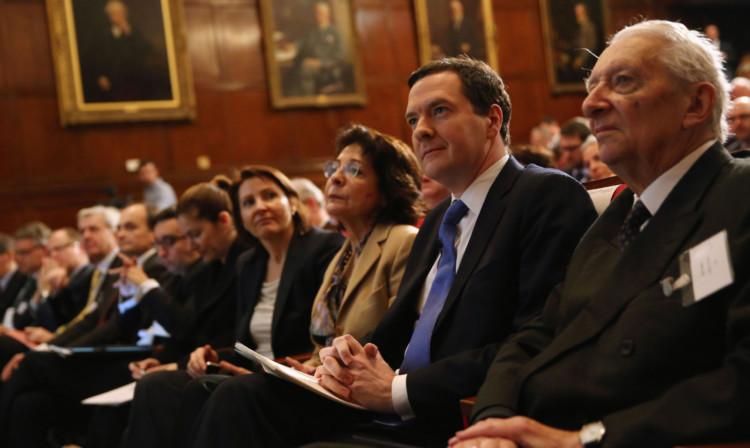Chancellor George Osborne has raised the prospect of Britain leaving the European Union if the 28-nation bloc fails to undertake fundamental reforms to improve competitiveness, create jobs and protect the rights of countries not in thesingle currency.
He also suggested that, if the UK was unable to secure support for reform from all EU states, it was ready to press ahead with a smaller group of like-minded countries under what he termed “enhanced cooperation”.
In a keynote speech, the Chancellor said the treaties underpinning the EU were no longer “fit for purpose” and failure to reform will condemn the continent to a future of economic crisis and decline, warning: “We can’t go on like this.”
Mr Osborne stressed the Government’s determination to renegotiate the terms of British membership so that the UK can remain in the EU following a referendum in 2017 but said that growing integration of the eurozone had posed threats to the position of Britain’s financial services industry and the City of London.
It was “absolutely necessary” to introduce proper legal protection of the rights of EU states not in the eurozone.
He warned Brussels not to put the UK in a position where it has to choose between joining the single currency to protect its interests or leaving the EU.
He told a conference hosted by the thinktank Open Europe and the Fresh Start Project in London: “Europe urgently needs economic reform. Eurozone integration is necessary if the euro is to survive but proper legal protection for the rights of non-euro members is absolutely necessary topreserve the single market and make it possible for Britain to remain in the EU.
“I believe it is in no one’s interests for Britain to come to face a choice between joining the euro or leaving the EU.”
Mr Osborne’s intervention came after Euro-sceptic backbenchers shattered the Tory truce on Europe with a call for Parliament to be given a veto over EU legislation.
Ministers were quick to dismiss the plan as “unworkable”, warning that it would undermine the single market.
Mr Osborne, however, made clear that ministers recognise a need for reform of the EU, at a time when Europe is falling behind the rising economic powers of Asia, while its welfare spending outstrips the rest of the world.
